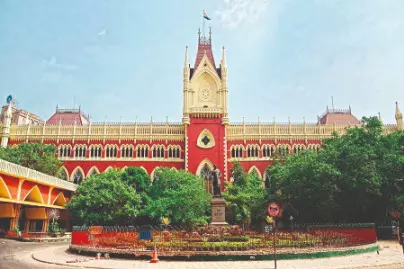
Kolkata, May 28 -- Observing that a departmental inquiry includes the right of the accused to challenge the credibility of the evidence presented against him, Calcutta High Court quashed a proceeding, chargesheet and termination order against a man who was accused of fund misappropriation by the Bhatpara-Naihati Cooperative Bank.
The bench of Justice Partha Sarathi Chatterjee was moved by the petitioner, challenging the legality of the disciplinary proceeding against him by the bank, the findings of the enquiry officer, and the termination order. He sought reinstatement with all consequential benefits.
The petitioner was employed as a junior clerk at the bank since 1998 and later promoted to Grade-IIB officer.
The petitioner contended that the chargesheet was issued by the chief executive officer (CEO) and not the Board which is the designated disciplinary authority under West Bengal Co-operative Societies Rules, 2011. The chargesheet lacked a list of documents and witnesses while no witnesses were examined, no documents were formally recorded and the enquiry report was not shared with the petitioner. He contended the enquiry was completed in a single day, imposing the burden of proof on him. Further, the termination order was issued under the influence of a special officer who lacked disciplinary authority.
The petitioner attained superannuation during pendency of the petition, and no service or retirement benefits were released. The bank submitted the petitioner admitted his guilt in a show-cause reply and was given a chance to defend himself. The absence of witnesses was attributed to CCTV footage and involvement of only one other accused.
The court observed that the CEO and the special officer lacked authority. Further, the chargesheet omitted documents and witnesses which deprived the petitioner of fair opportunity to present his defence. The enquiry process was unfair. There was no admission of guilt and no evidence against the petitioner of misappropriation of funds.
The court directed release of service-related benefits, including back wages and retirement benefits. If there is a legal bar for release of full pension, the bank has to release the petitioner's provident fund, leave encashment, and group insurance amounts.
Published by HT Digital Content Services with permission from Millennium Post.
